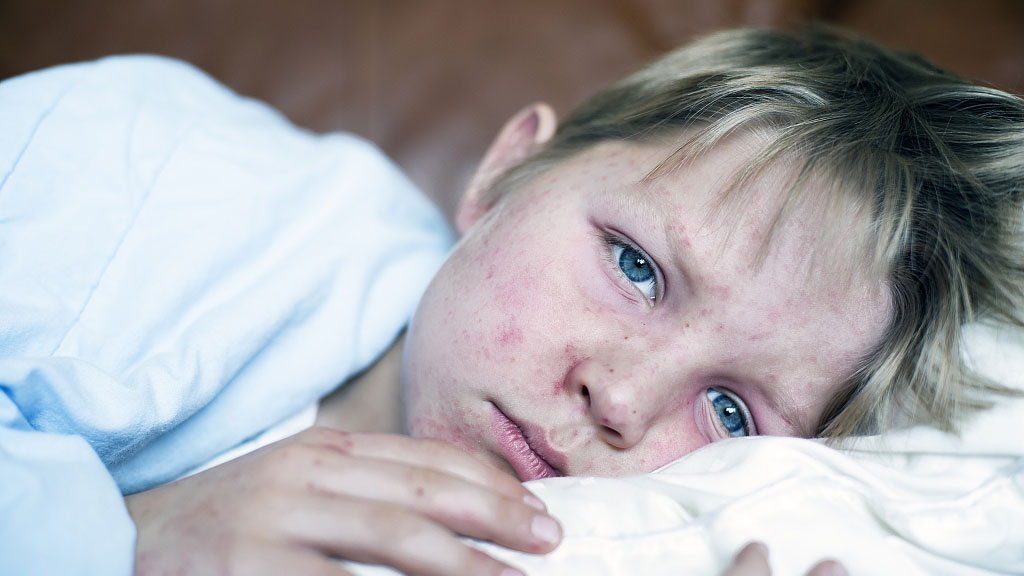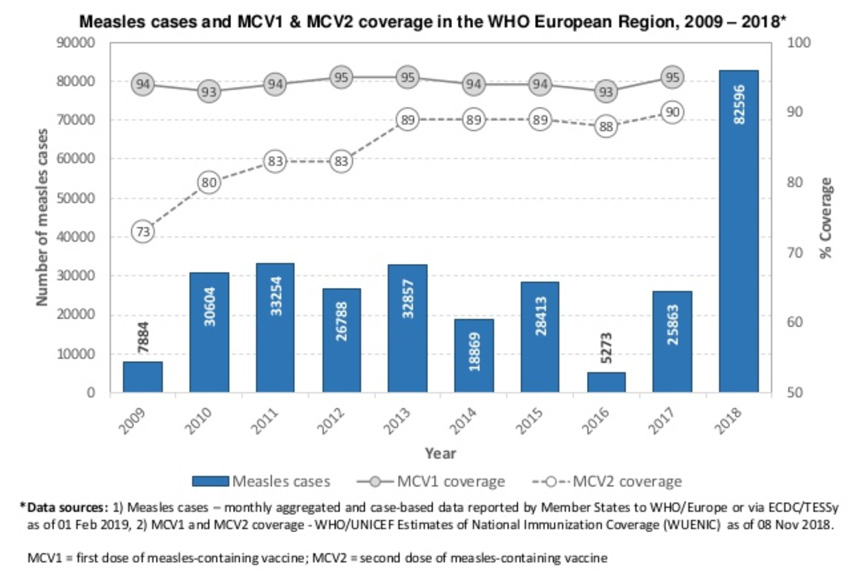
Health
18:54, 08-Feb-2019
Global outbreak of measles brings debate about anti-vax movement
By Gong Zhe

The World Health Organization (WHO) is blaming people who refuse to get vaccinated for the spread of certain diseases, and the latest measles outbreak may serve as proof.
The WHO issued a statement on Thursday saying anti-vaccine movement is one of the reasons why more Europeans contracted measles last year.
A vaccine is a substance that preemptively provides immunity against a given disease. Countries around the world launch national vaccination programs to make people healthier, and prevent the spread of certain diseases.
Yet some people refuse to take vaccines because they think they may have side effects that bring about more damage than protection.
"Anti-vaxxers" is the name given to such people.
The co-ruling anti-establishment Five Star Movement in Italy has questioned the safety of some vaccines and loudly denounced efforts to make vaccinations mandatory.
However, such a trend has already led to grave consequences among Europeans, as WHO had stated.

WHO Photo
WHO Photo
"Progress has been uneven between and within countries, leaving increasing clusters of susceptible individuals unprotected, and resulting in a record number of people affected by the virus in 2018," the statement said.
Measles is a viral disease that can damage the brains of children and even kill them.
"(Immunization) gaps at local level still offer an open door to the virus," WHO's European Director Zsuzsanna Jakab said in a statement.
Countries outside Europe are also suffering from the outbreak.
In the Philippines, 26 people have already died of measles in recent weeks.
The country's health secretary Francisco Duque alerted parents to "be more vigilant" while strengthening disease monitoring.
The problem is also vaccine-related, according to undersecretary Eric Domingo.
The Philippines used to have a Dengvaxia vaccination program. But it was ditched due to potential consequences of the vaccine they used.
The Dengvaxia vaccine maker, Sanofi Pasteur from France, said in 2017 that "more cases of severe disease could occur following vaccination" if the recipient was not infected by dengue virus before.
It can be hard for the government to persuade people to get vaccinated against measles in the wake of the controversy.
Duque said on Thursday that the measles vaccine they use is "safe and (has) been in use worldwide for decades now."
(Top Photo via VCG)

SITEMAP
Copyright © 2018 CGTN. Beijing ICP prepared NO.16065310-3
Copyright © 2018 CGTN. Beijing ICP prepared NO.16065310-3